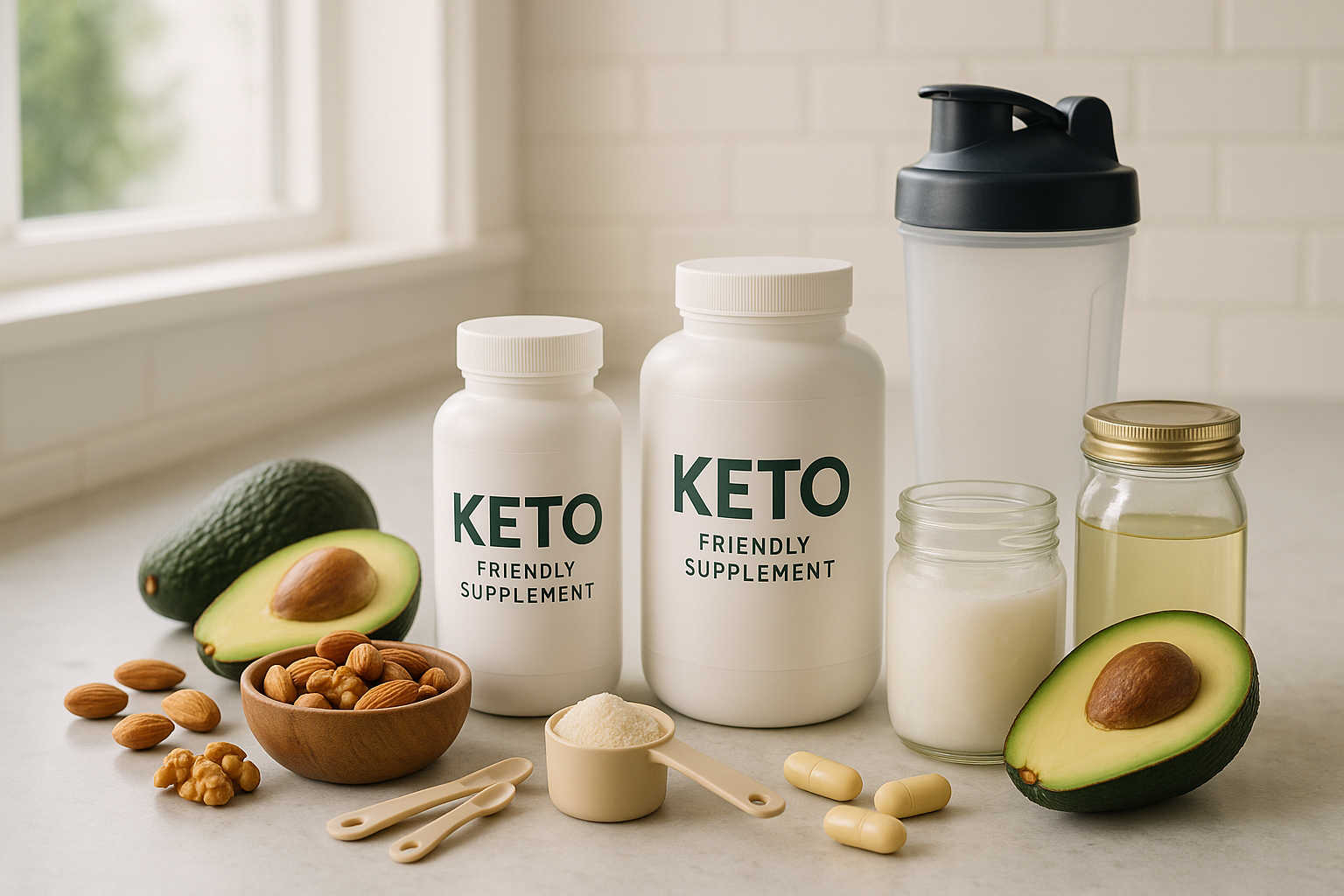The ketogenic diet or Keto Diet has become one of the most popular eating plans worldwide.
By shifting the body into a state of ketosis, it encourages fat burning for fuel instead of carbohydrates.
While many people experience quick weight loss and better energy, keto is not without challenges.
Nutrient gaps, digestive issues, and fatigue are some common problems that appear when following a low-carb lifestyle.

To balance these challenges, supplements play an important role. They provide essential nutrients that may
otherwise be missing from a restrictive diet. With the right support, you can enjoy the benefits of keto
without sacrificing your health.
Common Issues on the Keto Diet
Although keto has benefits, the sudden drop in carbs and reliance on fats can create difficulties.
These issues vary from mild discomfort to significant health concerns if not addressed properly.
- Keto Flu: Headaches, fatigue, and irritability during the first few days of transition.
- Electrolyte Imbalance: Low carb intake reduces sodium, potassium, and magnesium levels.
- Digestive Problems: Constipation or bloating due to lower fiber intake.
- Nutrient Deficiency: Limited food choices may result in missing vitamins and minerals.
- Low Energy: Some people feel sluggish before their bodies fully adapt to ketosis.
Addressing these problems early ensures that you can maintain a healthy keto lifestyle without unwanted side effects.
This is where supplements prove to be highly beneficial.
How Supplements Support Keto Health
Supplements bridge the nutritional gaps in keto diets. They not only replace missing nutrients but also
help maintain energy levels, support digestion, and enhance overall well-being. A smart supplement strategy
can transform your keto journey from a struggle into a sustainable lifestyle.
- Electrolyte Supplements: Sodium, potassium, and magnesium powders or capsules help prevent cramps and fatigue.
- Fiber Supplements: Psyllium husk or inulin supports digestion and reduces constipation.
- Omega-3 Fatty Acids: Fish oil or algae oil balances the high intake of saturated fats.
- Vitamin D and Calcium: Essential for bone health, especially when dairy intake is limited.
- MCT Oil: Medium-chain triglycerides provide quick energy and support deeper ketosis.
These supplements are not a replacement for whole foods, but they act as reinforcements that make
keto both safe and sustainable. When used correctly, they help minimize health risks and optimize results.
Tips for a Healthy Keto Lifestyle
Keto success requires more than just cutting carbs. Planning, hydration, and the right supplement routine
ensure that the body thrives in ketosis without long-term damage.
- Drink enough water daily to stay hydrated.
- Include leafy greens and low-carb vegetables for fiber and vitamins.
- Balance your fats by including healthy sources like avocado and olive oil.
- Use supplements wisely instead of relying on them fully for nutrition.
- Listen to your body and make adjustments when needed.
The ketogenic diet can be powerful for weight management and energy, but only if approached with care.
Supplements ensure you don’t miss out on essential nutrients while enjoying the benefits of ketosis.
With the right combination of diet, planning, and support, keto can be both safe and effective.